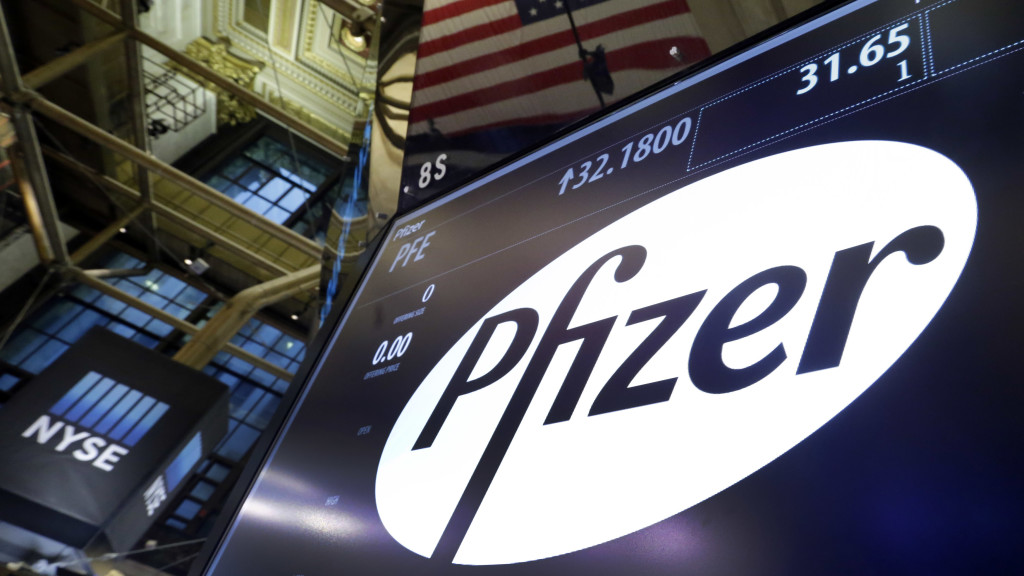 Update: Pfizer and Allergan officially announced Wednesday morning that they had terminated their $152 billion merger by mutual agreement.
Update: Pfizer and Allergan officially announced Wednesday morning that they had terminated their $152 billion merger by mutual agreement.
Pfizer is planning to terminate its $152 billion merger with Allergan, after the U.S. Treasury Department proposed new tax regulations that would reduce the proposed merger’s advantages, The New York Times reported this morning.
The two companies could announce their mutual decision to end the deal as soon as Wednesday morning, according to the NY Times.
Pfizer will pay Allergan $150 million for reimbursement of expenses associated with the transaction, according to Pfizer. The merger’s agreement had said that the pharmaceutical company who may terminate the deal would have to pay the other company up to $400 million for its expenses, it was reported late yesterday.
“We remain focused on continuing to enhance the value of our innovative and established businesses,” Pfizer CEO Ian Read said in a statement. He added that the pharmaceutical company will “make a decision about whether to pursue a potential separation of our innovative and established businesses by no later than the end of 2016, consistent with our original timeframe.”
Allergan CEO Brent Saunders said in a statement, “We are disappointed that the Pfizer transaction will no longer move forward.”
The proposed guidance from the Treasury Department issued late Monday threw the fate of several possible mergers into question — particularly, the proposed $152 billion Pfizer-Allergan merger.
Allergan’s shares plummeted Tuesday in response.
The Treasury Department introduced rules that would reduce the incentives for companies to carry out tax inversion deals. First, the new rules would address the practice in which a foreign company lends money to its U.S. subsidiary, allowing it to deduct the interest it pays on the debt, cutting its tax bill. And second, the new rules would affect how the size of foreign companies are measured: Allergan would be considered too small a portion of the merged company to garner the benefits of an inversion.
Late Tuesday, Pfizer and Allergan said in a joint statement: “We are conducting a review of the U.S. Department of Treasury’s actions announced today. Prior to completing the review, we won’t speculate on any potential impact.”
However, Reuters reported Tuesday that Pfizer is considering abandoning its $152 billion agreement to buy Allergan due to these new tax regulation rules, since the company would no longer benefit from its move to Ireland.
Reported Reuters, “The discussions between the two companies and their lawyers are set to continue for the remainder of Tuesday and no final decision has been made,” said a source familiar with the situation.
Pfizer and Allergan announced the proposed merger in November 2015. The deal, which would combine the makers of Viagra and Botox, sparked political controversy. Democratic Presidential Candidate Hillary Clinton had said, “We cannot delay in cracking down on inversions that erode our tax base,” while Donald Trump, Republican presidential candidate, said, “The fact that Pfizer is leaving our country with a tremendous loss of jobs is disgusting. Our politicians should be ashamed.”
Pfizer CEO Ian Read maintained that a deal that allows the company to move its headquarters to Ireland is positive for the U.S., saying “Pfizer’s proposed merger with Allergan is a blockbuster deal in the pharmaceutical industry.”
With the recent proposed tax regulation rules, that story looks to change.
“It’s going to be a major impediment,” Robert Willens, a New York-based tax analyst, told The Wall Street Journal on Tuesday. “[The U.S. Treasury Department has] addressed literally every benefit that one attempted to gain from an inversion and shut them all down systematically.”
Filed Under: Drug Discovery



